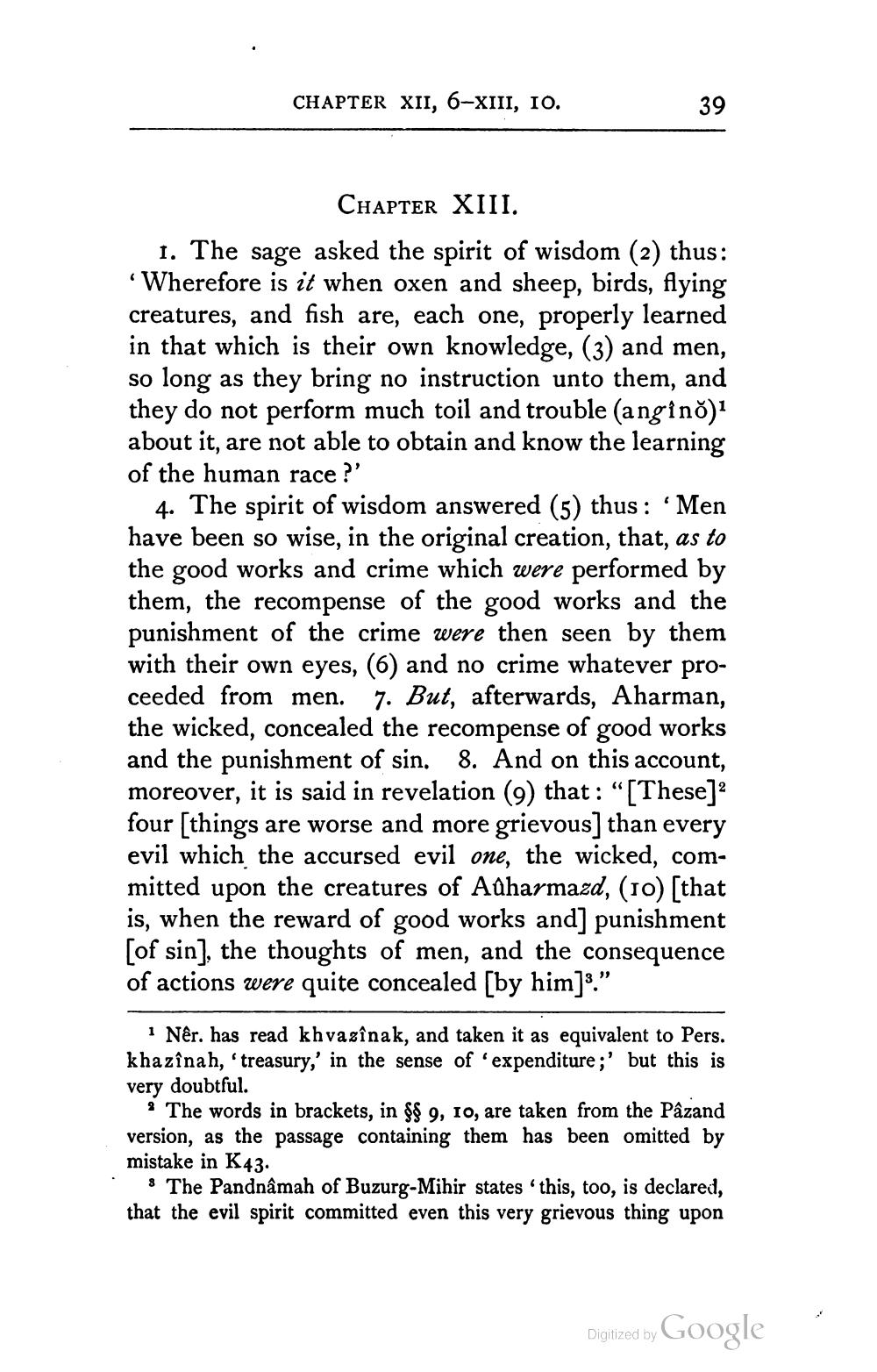________________
CHAPTER XII, 6-XIII, IO.
39
CHAPTER XIII. 1. The sage asked the spirit of wisdom (2) thus: Wherefore is it when oxen and sheep, birds, flying creatures, and fish are, each one, properly learned in that which is their own knowledge, (3) and men, so long as they bring no instruction unto them, and they do not perform much toil and trouble (angino) about it, are not able to obtain and know the learning of the human race?'
4. The spirit of wisdom answered (5) thus : 'Men have been so wise, in the original creation, that, as to the good works and crime which were performed by them, the recompense of the good works and the punishment of the crime were then seen by them with their own eyes, (6) and no crime whatever proceeded from men. 7. But, afterwards, Aharman, the wicked, concealed the recompense of good works and the punishment of sin. 8. And on this account, moreover, it is said in revelation (9) that: "[These]2 four [things are worse and more grievous] than every evil which the accursed evil one, the wicked, committed upon the creatures of Adharmazd, (10) [that is, when the reward of good works and] punishment [of sin), the thoughts of men, and the consequence of actions were quite concealed [by him].”
? Nêr. has read khvazînak, and taken it as equivalent to Pers. khazînah, 'treasury,' in the sense of 'expenditure;' but this is very doubtful.
? The words in brackets, in $$ 9, 10, are taken from the Pâzand version, as the passage containing them has been omitted by mistake in K43.
s The Pandnámah of Buzurg-Mihir states this, too, is declared, that the evil spirit committed even this very grievous thing upon
Digitized by G
Digitized by Google




